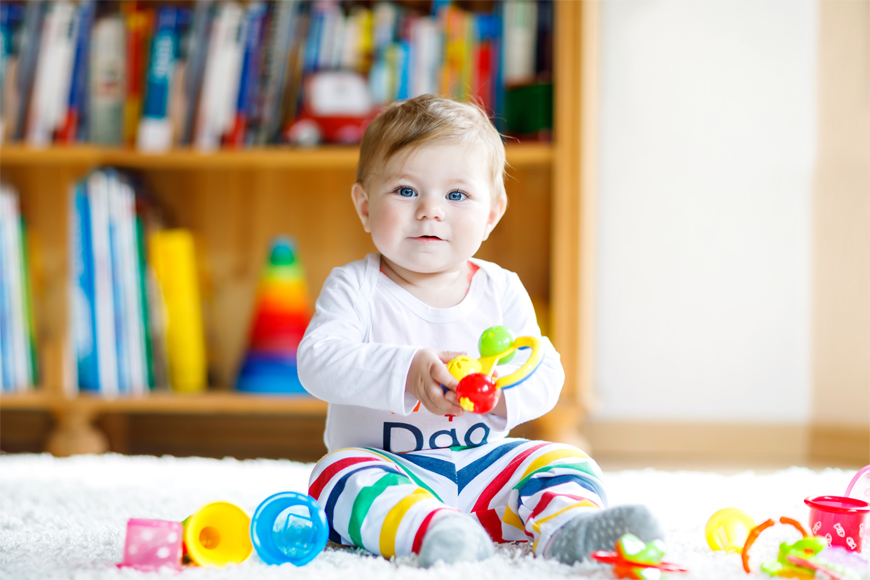How To Tell If Your Baby Is Progressing Normally
There's more to your child's developmental progress than just the accepted milestones...
16 October 2018

Babies and toddlers’ lives are full of significant milestones, and it’s hard for their parents to avoid worrying if they don’t reach them within expected time frames.
So if a baby doesn’t get its first tooth by around six months of age, or start to walk by the time it’s about one, some mums and dads can start to fret that their child isn’t developing normally – and 10% even feel they’ve failed as a parent.
And to make matters worse, research suggests 82% of parents compare their child’s development against their peers, and one in five make comparisons to friends’ little ones on social media.
The LEGO DUPLO research found dads are likely to spend more time checking their child’s progress (averaging 67 minutes per week) than mums (55 minutes), while first-time parents spend longer checking on milestones each week (62 minutes compared to 55 minutes for parents who have more than one child).
It also found 71% of parents believe every milestone a child meets, however small, should be celebrated, with more than half (57%) disagreeing with the idea that only recognised developmental milestones should be celebrated.

Here are a selection of the milestones from Birth-to-Five Development Timeline
4-6 weeks: starts to smile, and respond to the sounds around them
4-12 weeks: lifts their head – your baby will try to lift their head while lying on their front.
3-5 months: reaches out for objects
– your baby will start to reach out for objects as their muscles develop.
4-6 months: starts making new and different sounds.
5 months: can hold objects, lift and suck them.
6 months: starts to eat solids
6-8 months: sits without support
6-9 months: teething starts
6-9 months: starts trying to crawl
6-9 months: can pull themselves upright by using furniture to help them stand.
10-18 months: walks alone
12 months: responds to their own name – your baby can say words like mama and dada.
1.5-4 years: starts to have bladder control
– your child may be ready for potty training.
3-4 years: talks well in sentences – your child can chant rhymes and talk clearly enough to be understood.
3-4 years: starts to use a knife and fork and is learning to eat independently
Alternative milestones
Alternative milestones are highly individual, whatever age they happen, and might include:
Using fine motor skills to open doors on toys or press a button
The first time your child shares with you or a friend
Role-playing alone or with friends
Stacking bricks
Creating different shapes with materials or bricks, or drawing them.
Using organised colour sequences
Using the names and correct sounds of animal figures or pictures
Saying words like “I,” “me,” “we,” and “you” and some plurals (cars, dogs, cats)
Showing affection for friends without prompting
Taking turns in games
Showing concern for crying friend
Dressing and undressing self
Saying first name, age, and sex
Turning book pages one at a time
Pedalling a tricycle
- Tags:
- development
- milestones
- baby

























.png?itok=SvZPqMHH)




.png?itok=uB2ieOR7)












